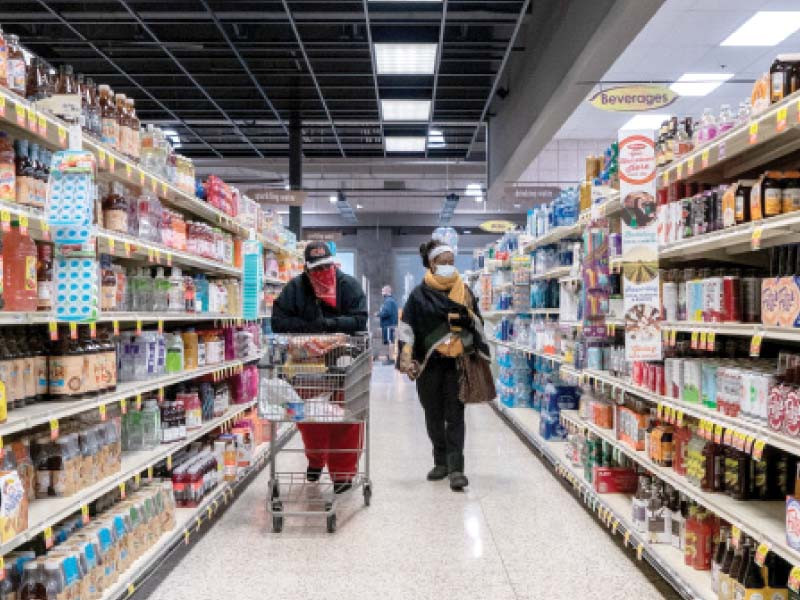
ISLAMABAD: The world economy is on the verge of another recession due to skyrocketing global commodity prices.
Heavy import-dependent economies including Pakistan are facing strong headwinds due to the unsustainable rise in import bills and prices of essential commodities including petrol, diesel and cooking oil. Understanding the gravity of the situation, the PTI government was managing this crisis through extraordinary measures to protect the citizens and businesses.
Due to the measures taken by the PTI government, the economy posted a strong growth of 5.6% in 2021. In the current year, the economic data shows that we are on target to achieve record exports of $30 billion, record remittances $32 billion and highest-ever agricultural farm output in history.
Private sector credit of Rs1.2 trillion in the first nine months of current fiscal year is the highest-ever recorded and shows a growth of 170% from last year. Manufacturing sector (LSM) has posted growth of 7.8% in the current year. Profitability of the top 100 companies listed on PSX recorded growth of 62% in 2021, the highest growth in the last 10 years. The inclusive growth strategy adopted by the PTI government with focus on labour-intensive construction, export industry, SMEs, tourism, and agriculture has led to the creation of 5.5 million jobs in the first three years, the highest by any government on record.
On average 1.84 million jobs per year were created under the PTI, which is significantly higher than PPP (1.4 million) and PML-N (1.1 million).
Current trajectory suggests that we would have achieved the target of 10 million jobs promised by Imran Khan in the 2018 manifesto.
According to the World Bank, Pakistan outperformed all regional economies with the lowest unemployment rate in the South Asia region at 4.3% compared to India 8%, Bangladesh 5.4% and Sri Lanka 5.9%. In line with Imran Khan’s vision of Riyasat-e-Madina, extraordinary measures were taken to scale up Ehsaas spending for the poorest households.
Under the Ehsaas ration scheme, over 20 million households (54% of total population) were provided subsidy on purchase of essential food items including flour, pulses and cooking oil. The landmark universal health insurance programme now covers the entire population of Punjab, K-P, ICT, AJK and districts in Sindh and Balochistan.
More than 60% of all households across Pakistan are provided free hospitalisation and healthcare, providing savings of Rs10 lakh to each citizen. These extraordinary measures also included the Rs300 billion relief package. The PTI government reduced taxes on petroleum products to 0% and froze prices at the pump to shield consumers. As a result, the domestic consumers are paying Rs150 per litre on petrol compared to Rs188 in Bangladesh and Rs271 in India. Similarly, households and commercial users were provided relief on their power consumption by a reduction of Rs5 per unit in their bills.
The funding for this relief package was secured through record tax collection by the FBR, higher dividend incomes from state-owned companies and a sharp reduction in expenditures. Difficult steps were taken to reduce imports including raising interest rates, ensuring adequate financing to manage SBP reserves and exchange rate correction. The IMF programme was put back on track and $22 billion of liquid reserves were shored up by the end of February 2022. That’s when the PDM partners jumped in to sabotage the economy and cause unnecessary panic in markets.
The seriousness of PDM leadership to the economic challenges can be gauged from the fact that they still don’t have a finance minister at the helm of affairs. Promises of reducing inflation and giving relief to the masses were all abandoned within the first week. Prices of electricity were hiked by Rs4.85 per unit, whereas prices of essential food items including sugar and cooking oil have increased sharply. Funding for the Panagahs and Langars has been slashed, with daily-wage workers and the most vulnerable citizens deprived of food and shelter.
Miftah Ismail wanted to reduce power tariffs to Rs12 per unit, yet the first step he has taken is to burden consumers by increasing prices by Rs4.85 per unit. Similarly, after threatening to stop overseas Pakistanis from being able to vote in the general elections, the PDM leadership has now publically acknowledged the success of Roshan Digital Account – a key initiative of Imran Khan government and the $4.4 billion investment made by the overseas diaspora. After criticising Imran Khan for providing massive relief to the masses on petrol and diesel, the PDM leadership has now decided to sustain these relief measures.
In the meantime, the economy is tumbling towards an unmitigated financial crisis of a scale we have not seen before. Just look at the events in Sri Lanka to get the perspective. The economy can still be saved despite the difficult global environment if policymakers take tough decisions today. Lacking any form of public legitimacy, the PDM financial wizards are already stumbling in their first week in office. Only a leadership with the political capital can rescue the economy from the abyss. Hence, we demand early fresh elections and request the PDM leadership and their handlers to take the right decision.






